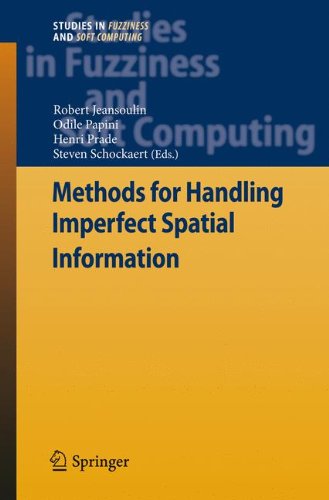

Most ebook files are in PDF format, so you can easily read them using various software such as Foxit Reader or directly on the Google Chrome browser.
Some ebook files are released by publishers in other formats such as .awz, .mobi, .epub, .fb2, etc. You may need to install specific software to read these formats on mobile/PC, such as Calibre.
Please read the tutorial at this link: https://ebookbell.com/faq
We offer FREE conversion to the popular formats you request; however, this may take some time. Therefore, right after payment, please email us, and we will try to provide the service as quickly as possible.
For some exceptional file formats or broken links (if any), please refrain from opening any disputes. Instead, email us first, and we will try to assist within a maximum of 6 hours.
EbookBell Team

4.8
34 reviewsSpatial information is pervaded by uncertainty. Indeed, geographical data is often obtained by an imperfect interpretation of remote sensing images, while people attach ill-defined or ambiguous labels to places and their properties. As another example, medical images are often the result of measurements by imprecise sensors (e.g. MRI scans). Moreover, by processing spatial information in real-world applications, additional uncertainty is introduced, e.g. due to the use of interpolation/extrapolation techniques or to conflicts that are detected in an information fusion step. To the best of our knowledge, this book presents the first overview of spatial uncertainty which goes beyond the setting of geographical information systems. Uncertainty issues are especially addressed from a representation and reasoning point of view. In particular, the book consists of 14 chapters, which are clustered around three central topics. The first of these topics is about the uncertainty in meaning of linguistic descriptions of spatial scenes. Second, the issue of reasoning about spatial relations and dealing with inconsistency in information merging is studied. Finally, interpolation and prediction of spatial phenomena are investigated, both at the methodological level and from an application-oriented perspective. The concept of uncertainty by itself is understood in a broad sense, including both quantitative and more qualitative approaches, dealing with variability, epistemic uncertainty, as well as with vagueness of terms.